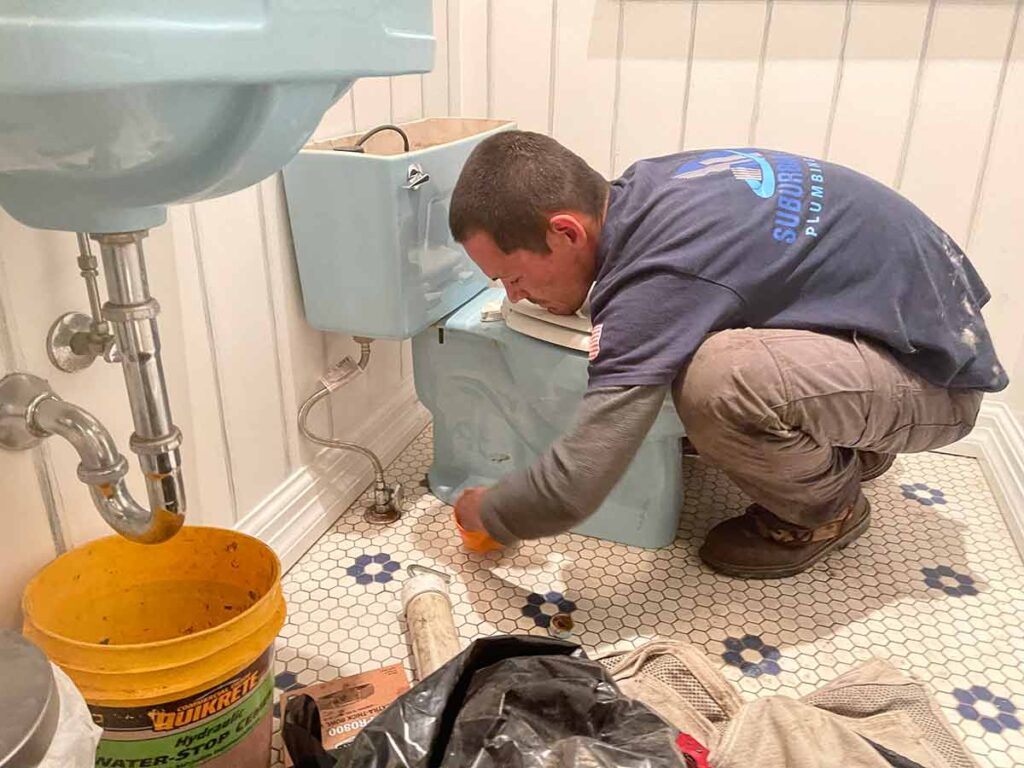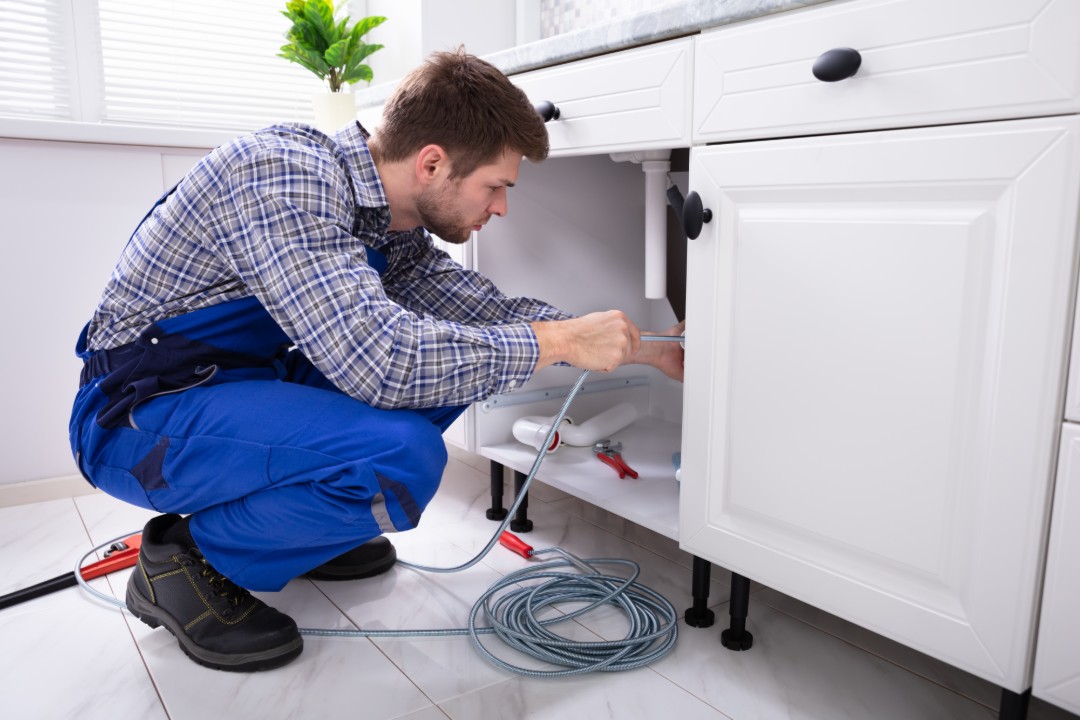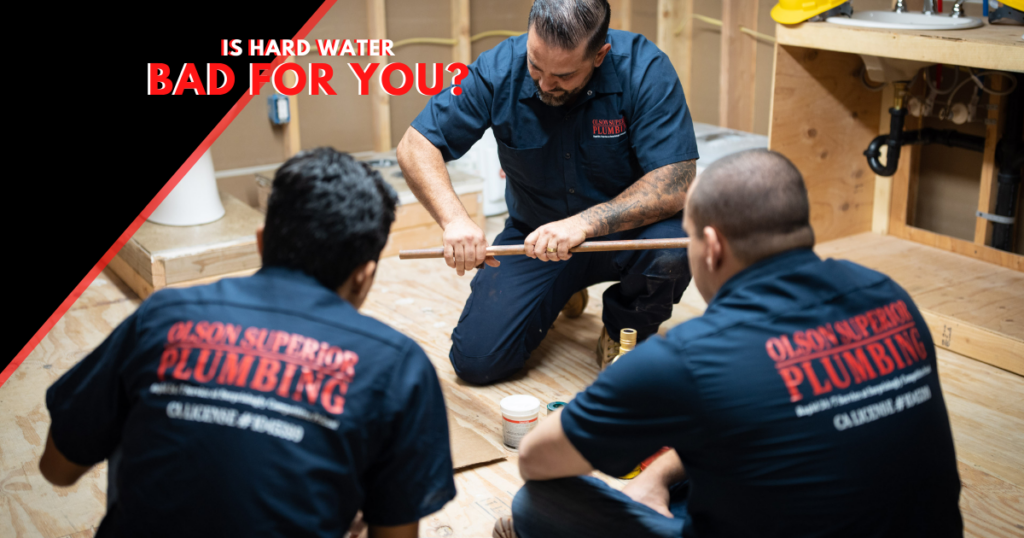The Duty of Plumbing and Heating in Indoor Air Quality
Your home's pipes and heating systems play a vital function in keeping interior air top quality. While you may not recognize it, problems with these essential elements can substantially impact the air you and your household breathe. From mold and mildew growth triggered by plumbing leakages to potential carbon monoxide gas hazards from damaged heating devices, comprehending the affiliation between these systems and your interior setting is necessary. What's even more, proper ventilation and moisture control can better enhance air pureness. Dive deeper into this topic, and you'll discover practical approaches to ensure your home's air is tidy, safe, and healthy and balanced.
Key Takeaways
- Pipes leaks can promote mold and mildew growth, launching spores and jeopardizing interior air top quality, demanding regular examination and maintenance.
- Corrosion in plumbing pipelines can introduce air-borne contaminants, such as copper and iron oxide particles, influencing air high quality and calling for timely fixings.
- Proper maintenance of heating tools, including routine filter changes and examinations, makes certain efficient operation and safeguards interior air top quality.
- Reliable ventilation systems, both all-natural and mechanical, play a critical duty in distributing fresh air and eliminating impurities, improving total interior air top quality.
- Optimizing heating and cooling system style and maintaining ductwork, including normal filter changes and duct cleansing, are essential for improving air flow patterns and maintaining interior air pureness.
Plumbing Systems and Indoor Air Pollutants
Your pipes system can be a considerable resource of indoor air toxins, as leaks or improper installment can enable impurities to enter your living space. Plumbing leakages, as an example, can promote the growth of mold and mildew and mildew, which launch spores that lessen your indoor air high quality.
Additionally, if your water is contaminated, the pollutants can vaporize and become airborne, revealing you and your household to prospective health and wellness dangers.
To preserve great interior air top quality, it's necessary to address any plumbing issues immediately. Regularly inspecting your pipelines and fixtures for leaks, and resolving them promptly, can aid stop the accumulation of mold and mildew.
In addition, guaranteeing your water high quality by using appropriate filtration and therapy methods can eliminate the risk of air-borne impurities. By taking proactive actions to manage your pipes system, you'll take a breath much easier and delight in a healthier interior environment.
Heating Devices and Air Quality Concerns
Proper maintenance of your furnace is essential for interior air quality.
Consider how ventilation systems impact air circulation and filtration.
Remember to focus on burning safety and security to stop hazardous carbon monoxide leakages.
Heating System Upkeep Influences
Preserving your furnace not only assures its efficient operation however also plays an important duty in maintaining indoor air quality. Overlooked home heating equipment can inadvertently compromise the healthiness of your home's atmosphere.
Changing your heating system's air filter frequently is important. Select high-efficiency filters that successfully trap dirt, pollen, and various other airborne particulates, making certain they don't flow via your home.
Adhering to the supplier's suggested upkeep routine is similarly important. Specialist tune-ups guarantee your heating system runs efficiently and creates tidy, breathable air.
Neglecting routine maintenance, like cleansing the blower components and checking for leaks, can result in the build-up of impurities. These impurities obtain distributed throughout your home whenever the heating unit kicks on.
Do not wait till issues emerge. Aggressive furnace treatment is the best means to protect your indoor air top quality and your household's wellness.
With the best filter and maintenance technique, you can breathe freely recognizing your heater is functioning at peak efficiency.
Ventilation System Factors To Consider
Reliable air flow systems play an important role in guarding indoor air top quality when home heating equipment remains in use, as they aid distribute fresh outdoors air and eliminate contaminated interior air.
All-natural air flow, like operable home windows, can offer a straightforward and cost-effective way to boost air exchange, but it's typically not nearly enough by itself, especially throughout cold weather when windows are shut. That's where mechanical ventilation systems can be found in, using fans and ductwork to continuously generate outdoor air and eliminate stale, contaminated air.
When selecting an air flow system, consider elements like the size of the space, the number of residents, and the kind of home heating equipment being used. Appropriate installation and routine maintenance are additionally necessary to guarantee the system operates successfully and properly.
Burning Security Measures
While a properly designed air flow system helps flow air, you additionally need to think about the burning safety and security of your heating devices to secure indoor air top quality.
Inappropriate combustion can launch hazardous contaminants like carbon monoxide gas, so it's important to guarantee your furnace go through routine professional evaluation and maintenance.

One vital facet to examine is the proper venting of flue gas from your heating system, boiler, or water heater. If the flue is obstructed or malfunctioning, it can permit carbon monoxide gas to backflow into your living space, presenting a major health risk.
Specialist technicians will certainly examine the problem of the flue and ensure it's airing vent appropriately to the outdoors.
They'll likewise check for carbon monoxide gas levels and make any required modifications to your home heating devices to optimize combustion performance and safety and security.
Don't take possibilities with your household's well-being - purchase regular upkeep to keep your heater running cleanly and accurately.
Ventilation's Influence on Indoor Air
Airflow patterns significantly impact interior air quality.
How your HVAC system is developed plays a vital function in controling ventilation.
Allow's explore different ventilation approaches and see how they can boost the air you breathe.
Airflow Patterns Effect
Appropriate air flow is of extremely important importance in maintaining healthy and balanced indoor air top quality, as the patterns of air flow can significantly influence the distribution and focus of airborne contaminants throughout a space.
By enhancing air movement, you can effectively reduce the buildup of toxins, irritants, and other unwanted bits. The configuration of your ductwork plays a vital role in this procedure, as the design and layout of the air circulation system directly influence the air flow patterns within the building.
Tactically put vents, carefully sized air ducts, and efficient air handling equipment can collaborate to produce a balanced, well-circulated interior atmosphere. https://islingtonplumbing.co.uk This not only boosts the total air top quality however also promotes owner comfort and well-being.
Frequently maintaining and adjusting your HVAC system can further maximize air movement, making sure that fresh, clean air is consistently distributed throughout the space.
A/c System Layout
The layout of your cooling and heating system plays a crucial duty in keeping perfect interior air high quality, as it straight figures out the ventilation patterns throughout the area. Proper system integration is vital, guaranteeing smooth coordination between the numerous components like air trainers, air ducts, and thermostats. This assimilation not only enhances energy efficiency but also optimizes air flow, temperature level, and humidity control.

When creating your cooling and heating system, think about variables like space format, occupancy degrees, and planned use of the area. This enables you to select the ideal equipment dimension and arrangement to meet your demands.
Furthermore, including energy-efficient attributes, such as variable-speed motors and programmable controls, can additionally boost the system's performance and minimize operational expenses.
Ultimately, a properly designed HVAC system is the structure for accomplishing phenomenal interior air quality. By prioritizing system integration and power effectiveness, you can produce a comfortable, healthy, and sustainable indoor environment for your building's residents.
Ventilation Strategies Comparison
When it involves boosting indoor air quality, you'll find that various air flow techniques can have a remarkable effect on the environment within your structure.
All-natural air flow, which counts on openings like windows and doors to permit airflow, can be a cost-effective service, but it may not offer consistent control over air exchange rates.
On the various other hand, mechanical ventilation systems, which make use of fans and ductwork to actively distribute and problem the air, offer extra accurate administration of airflow and filtering.
The option between natural and mechanical air flow frequently depends on variables like the dimension and format of your building, regional environment conditions, and your specific interior air high quality objectives.
Mechanical systems succeed at keeping regular air flow and filtration, making them appropriate for rooms with high tenancy or specialized demands.
However, they need even more power and upkeep than natural ventilation.
Considering the pros and cons of each strategy can assist you select the most appropriate air flow strategy for your indoor air quality requirements.
Moisture Control and Mold Prevention
Managing humidity levels is vital for interior air top quality, as excess wetness can promote mold development and jeopardize the wellness of occupants. You can monitor moisture degrees making use of tactically put humidity sensing units, which will certainly alert you to any type of spikes in moisture material.
Once you have actually determined problem areas, you'll intend to address the origin by installing correct moisture barriers, such as vapor retarders and sealers, to stop water breach.
Keeping ideal moisture degrees, usually in between 30-50%, will not only inhibit mold and mildew formation but likewise improve convenience and performance of your heating and cooling system. Proper ventilation is vital too, as it assists circulate fresh air and eliminate excess humidity.
Pipeline Corrosion and Airborne Contaminants
Deterioration within plumbing pipelines can present airborne contaminants that endanger indoor air quality, necessitating positive inspection and upkeep. The products used in your pipelines play a crucial function in establishing the extent of this problem.
For instance, copper pipelines are susceptible to corrosion, which can cause the launch of copper fragments into the water. These fragments can after that become aerosolized, adding to bad indoor air top quality.
In a similar way, galvanized steel pipelines are prone to rusting, triggering iron oxide bits to enter the air. Also PVC pipelines, though less susceptible to deterioration, can release plastic-based pollutants if they break down in time.
Regular inspections and punctual repair work are basic to mitigate the impacts of pipeline rust. By resolving these issues, you can guarantee that your plumbing system doesn't end up being a source of air-borne contaminants, preserving a much healthier indoor environment for you and your family members.
Heating And Cooling Maintenance and Air Purity
Properly keeping your HVAC system is vital for protecting the purity of interior air. Regular filter changes, air duct cleansing, and system tune-ups protected reliable air circulation and filtering, removing airborne impurities that could otherwise jeopardize your family's wellness.
When it involves cooling and heating efficiency, don't forget the significance of altering your air filters on schedule. Unclean, stopped up filters restrict airflow, requiring your system to work tougher and consume even more energy. By changing them every 1-3 months, you'll ensure peak efficiency and prolong the life expectancy of your equipment.
Periodically cleaning your ductwork is likewise vital for air purity. In time, dirt, debris, and even mold and mildew can accumulate, decreasing air top quality. Professional duct cleaning gets rid of these toxins, improving the total cleanliness of the air circulating through your home.
In addition, organizing annual HVAC tune-ups protects your system operates at maximum effectiveness, taking in less power while effectively filtering the air. This positive maintenance safeguards your family's health and wellbeing and your energy costs.
Hot Water Heater and Indoor Air Security
Your water heater can also influence the top quality of indoor air otherwise maintained appropriately. Malfunctioning hot water heater can release damaging gases like carbon monoxide, endangering your household's health and wellness. That's why it's vital to assure your water heater is running efficiently and securely.
Correct hot water heater maintenance is essential to gas safety. Normal examinations can identify concerns like leakages, splits, or malfunctioning elements that might bring about gas leakages or improper burning. Verifying your water heater fulfills energy performance requirements is additionally crucial, as ineffective designs use more fuel and possibly release even more exhausts.
Think about upgrading to a tankless or high-efficiency hot water heater, which are made to be a lot more eco-friendly and more secure for indoor air top quality. These models frequently have far better ventilation systems and tighter seals to stop gas leaks. By focusing on water heater performance and gas security, you can breathe simpler understanding your indoor air is tidy and healthy.
Ductwork Style and Air Flow
The style and layout of your home's ductwork can substantially affect interior air blood circulation, which is required for keeping great air high quality.
The sort of ductwork materials you select can impact air movement performance. Inflexible metal air ducts, as an example, deal remarkable air tightness and marginal resistance, permitting air to stream freely. On the other hand, versatile ductwork may be less complicated to mount but can restrict air flow if not appropriately made.
In addition, the arrangement of your ductwork plays a substantial function. Smooth, gradual bends and shifts assist maintain air flow, while doglegs and constraints can produce turbulence and minimize efficiency. Appropriate sizing of the ducts is likewise essential - small air ducts will certainly battle to supply adequate air flow, while oversized ones may create air to go stale.
Regularly evaluating and maintaining your ductwork is key. Leaks, blockages, and buildup of dust and particles can all endanger air flow and indoor air high quality.
Pipes Leakages and Air High Quality Effects
Along with ductwork, plumbing problems can likewise greatly effect interior air quality, as any type of leaks or wetness troubles can promote the growth of mold and mildew and mold.
You'll wish to stay on top of leak detection and moisture control in your home to preserve a healthy and balanced atmosphere. Plumbing leakages, whether concealed behind wall surfaces or under floorings, can cause damp conditions that develop a perfect breeding place for unsafe microbes.
Not only can this compromise your interior air high quality, however it can also create structural damages in time. Be positive by regularly examining pipes fixtures and links for any kind of indications of leak.
If you do find a leakage, address it immediately to stop mold and mildew and mildew from taking hold. Investing in proper wetness control actions, like air flow systems and dehumidifiers, can also go a lengthy method in guarding your indoor air top quality.
Regularly Asked Inquiries
What Is the Role of Plumbing in Improving Indoor Air Top Quality?
Well, proper pipe upkeep and water top quality play crucial duties in enhancing interior air quality.
When pipes systems aren't effectively preserved, they can end up being breeding premises for mold and microorganisms, which can then contaminate the air you breathe.
By maintaining your pipelines tidy and your water free from contaminations, you'll delight in fresher, healthier air throughout your home.
How Can Heating Equipments Impact Indoor Air Contamination?

You might not realize it, but your heater can substantially impact your indoor air high quality.
Disregarding furnace maintenance and neglecting to replace air filters can allow pollutants and allergens to circulate throughout your home.
Regularly servicing your furnace and altering filters can go a lengthy means in decreasing indoor air pollution.
What Are the Benefits of Appropriate Air Flow for Air Top Quality?
Correct ventilation approaches can greatly improve your indoor air high quality.
By presenting fresh air into your home, you have the ability to remove stale, polluted air and replace it with cleaner, healthier air.
This not only boosts the total breathability of your home however also assists to weaken any airborne contaminants.
Carrying out reliable ventilation can make a noticeable difference in the top quality of the air you and your household breathe daily.
Exactly How Can Humidity Control Prevent Mold And Mildew Development?
Proper humidity policy is vital to stop mold and mildew development in your home.
By maintaining interior humidity levels in between 30-50%, you can develop a setting that's unfavorable for mold and mildew to flourish.
Mold needs wetness to grow, so regulating moisture through ventilation, dehumidifiers, and other methods is crucial for mold and mildew prevention.
Take an energetic strategy to managing your home's moisture, and you'll delight in a much healthier, mold-free interior setting.
What Are the Potential Wellness Risks of Pipeline Corrosion?
You may be surprised to discover that pipeline rust can pose major health threats.
Corroded pipelines can leach dangerous substances like lead, copper, and iron into your supply of water. This infected water can after that expose you to heavy steel poisoning, intestinal issues, and even neurological problems.
To prevent these risks, it's important to stay on top of pipe upkeep and deterioration prevention via regular evaluations and prompt repair work.
Do not ignore the importance of this often-overlooked element of your home's framework.
Verdict
You can not forget the vital role of pipes and home heating in preserving interior air high quality.
Proper upkeep of these systems is vital to prevent contaminants, control moisture, and assurance reliable air circulation.
By addressing possible concerns like pipe deterioration and a/c problems, you'll create a much healthier setting for yourself and your household to take a breath.
